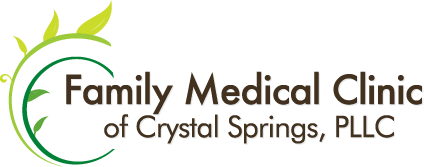Obsessive Compulsive Disorder
Introduction
Obsessive compulsive disorder (OCD) is a type of anxiety disorder. People with OCD experience obsessive thoughts, compulsions, or both. Obsessions are recurrent thoughts, ideas, feelings, or sensations that play over and over again in a person’s mind. Compulsions are actions or behaviors that a person feels compelled to do, in some cases, to relieve an obsession. Most people with OCD experience symptoms before the age of 30. OCD is treated with medication, therapy, or a combination of treatments.
Causes
OCD typically develops in children, teenagers, and young adults. Most people with OCD experience symptoms by the time they are 30 years old. It affects males and females in equal numbers.
Symptoms
Obsessive symptoms include thoughts, feelings, ideas, and sensations that come into your mind over and over again. Your obsessions may have nothing to do with reality, and although you realize that they are inappropriate, you may have difficulty or be unable to stop them from entering your mind. The recurrent obsessions may cause you anxiety, distress, or feelings of impending doom. Obsessions differ from person to person. Common examples include fears of getting hurt, germs, or harming someone.
Compulsions are repeated activities or rituals performed in an attempt to control or make the obsessions go away. Compulsions can include behaviors, such as repeated hand washing, touching items, putting things in order, or perfectly arranging items. It may include repeated checking, including checking to make sure a coffee pot is off, that the stove is off, or turning a light switch on and off. Compulsions can include repetitive thought processing, such as praying, counting, or repeating phrases. Compulsions can also include hoarding activities, including saving excessive amounts of paper scraps, rubber bands, tinfoil, clothes, or other items to such a degree that they disrupt a household.
Diagnosis
Treatment

Copyright © - iHealthSpot Interactive - www.iHealthSpot.com
This information is intended for educational and informational purposes only. It should not be used in place of an individual consultation or examination or replace the advice of your health care professional and should not be relied upon to determine diagnosis or course of treatment.
The iHealthSpot patient education library was written collaboratively by the iHealthSpot editorial team which includes Senior Medical Authors Dr. Mary Car-Blanchard, OTD/OTR/L and Valerie K. Clark, and the following editorial advisors: Steve Meadows, MD, Ernie F. Soto, DDS, Ronald J. Glatzer, MD, Jonathan Rosenberg, MD, Christopher M. Nolte, MD, David Applebaum, MD, Jonathan M. Tarrash, MD, and Paula Soto, RN/BSN. This content complies with the HONcode standard for trustworthy health information. The library commenced development on September 1, 2005 with the latest update/addition on February 16, 2022. For information on iHealthSpot’s other services including medical website design, visit www.iHealthSpot.com.

